May 27, 2025 | 11:50 GMT +7
May 27, 2025 | 11:50 GMT +7
Hotline: 0913.378.918
May 27, 2025 | 11:50 GMT +7
Hotline: 0913.378.918
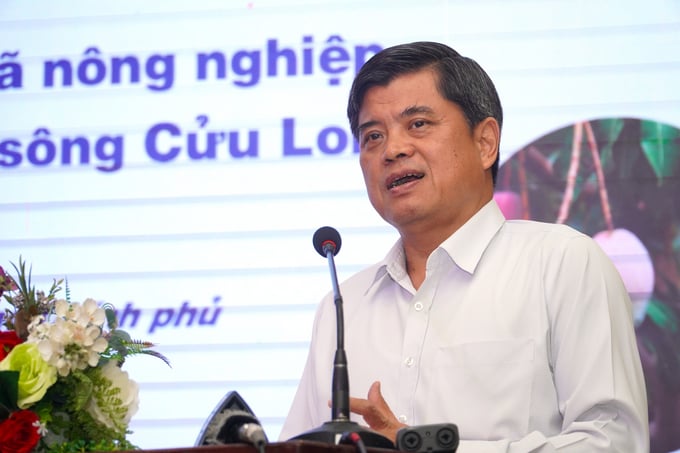
It is expected that in early 2024, the World Bank will make the first payment to rice farmers to reduce emissions. Photo: Kim Anh.
For cooperatives in 13 provinces and cities in the Mekong Delta region to improve their production capacity, in the spirit of the project on enhancing the ability to adapt to climate change (climate change) of agricultural cooperatives in the Mekong Delta, the period 2021 - 2025 has been approved by the Prime Minister on July 19, 2022, on November 22, in Can Tho City, Deputy Minister of Agriculture and Rural Development Tran Thanh Nam chaired a conference to deploy this project to the Departments of Agriculture and Rural Development, regional cooperatives.
Deputy Minister Tran Thanh Nam assessed that this project is one of the contents of Resolution 120 of the Government on climate change in the Mekong Delta. In particular, this is the expectation of many agricultural cooperatives in the region in the context of the current extreme climate change.
In particular, the project focuses on two important contents. The first is to improve the capacity of cooperatives to adapt to climate change. The second is towards transforming production models to adapt. With a specific goal by 2025, 100% of regional agricultural cooperatives will be propagated and fostered to raise awareness, proactively take measures to adapt to climate change in production, business, processing, etc., preserving agriculture, forestry, aquatic products, and salt production. In addition, each province and city in the Mekong Delta will have 3-5 agricultural cooperative models applying effective adaptation measures to climate change, combining circular economic models.
The conference posed a question for localities in the Mekong Delta to prioritize what to do to implement this project effectively. The view of the Deputy Minister of the project is an opportunity for cooperatives to transform production. It is also a condition for more than 2,500 agricultural cooperatives in the Mekong Delta to change their perception.
Rice production is a priority field of transforming production towards high quality, associated with green growth, and sustainable development, significantly reducing greenhouse gas emissions. Based on the results from the VnSAT Project or the successes of the cooperatives when implementing the process "1 must 5 decreases", "3 decreases 3 increase. It will be an essential premise for cooperatives to consolidate their production models, gradually towards production with reduced emissions.

It is expected that in early 2024, the World Bank will make the first payment to rice farmers to reduce emissions. Photo: Kim Anh.
Determining this is difficult, but Deputy Minister Tran Thanh Nam suggested localities be determined to implement it. In particular, the Deputy Minister asked localities to focus on two issues expanding the area of cooperative models, not framing the existing model. In addition, it focuses on creating breakthroughs in reducing greenhouse gas emissions and using agricultural by-products.
At this conference, Mr. Cao Thang Binh, Senior Agricultural Specialist of the World Bank in Vietnam, affirmed that the World Bank is ready to support cooperatives in the Mekong Delta region to reduce emissions. Emission-reduction production cooperatives will be paid carbon credits, equivalent to about US$ 150 per hectare.
It is expected that in early 2024, the World Bank will make the first payment to rice farmers to reduce emissions through cooperatives applying the 1 to 5 reduction techniques under the VnSAT project program. Mr. Binh estimated that Vietnam's agricultural industry could reduce at least 10 million tons of carbon, earning US$ 100 million annually.
With this capital, the cooperatives can cover many input costs, machinery, etc. This is a breakthrough direction for the agricultural industry, affirming the effectiveness of production investment to reduce emissions.
At The 26th UN Climate Change Conference of the Parties (COP26), Vietnam is committed to improving the effectiveness of climate change adaptation through strengthening state management and resources; strengthening resilience and improving the adaptability of communities, economic sectors, and ecosystems; reducing risks of disaster and consequential damages; always be prepared to respond to natural disasters and climate extremes increased by climate change.
Adaptation solutions to reduce damage from impacts related to future climate changes are identified for each sector and region.
By 2030, Vietnam will reduce its total greenhouse gas emissions by 9% compared to the normal development scenario by domestic resources and increase its contribution up to 27% with international support through bilateral and multilateral cooperation mechanisms as well as the implementation of new mechanisms under the Paris Agreement (by 2050, the target is set at 0%).
Translated by Ha Phuc
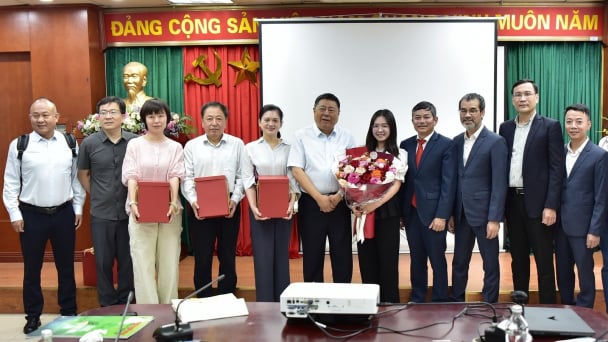
(VAN) The alignment in goals and operational direction between the Vietnam Agriculture and Nature Newspaper and Shaanxi Daily opens up promising prospects for journalism and media cooperation.
/2025/05/26/3422-3-102748_432.jpg)
(VAN) Prime Minister Pham Minh Chinh has been honored as the Distinguished ASEAN Leader at the ASEAN Leadership and Partnership Forum (ALPF) 2025 held in Malaysia, affirming Vietnam’s role and reputation.
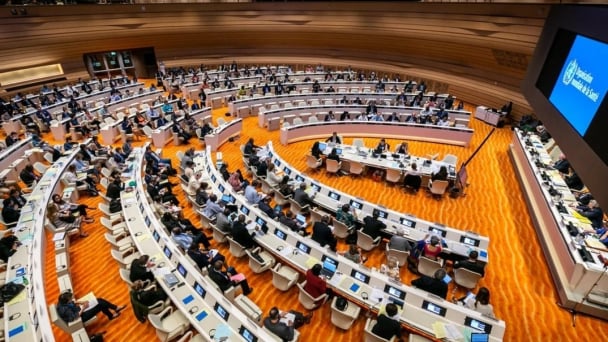
(VAN) At WHA78, with health placed at the heart of the global climate storm, Viet Nam enters a new commitment to protect communities from increasingly severe risks.
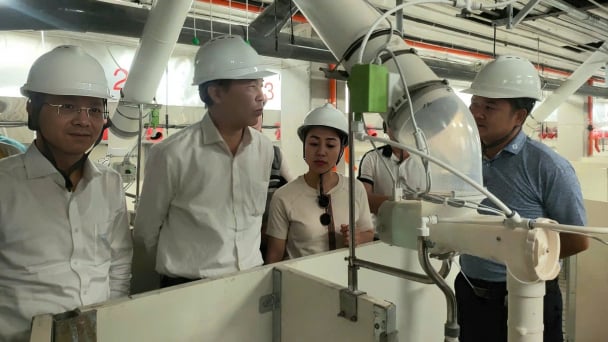
(VAN) Despite investment costs being 1.5 to 1.8 times higher than conventional methods, multi-story pig farming demonstrates outstanding effectiveness, increasing land-use efficiency by 4 to 10 times.
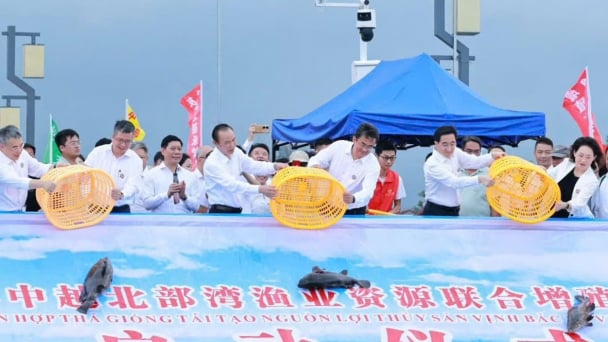
(VAN) Deputy Minister of Agriculture and Environment Phung Duc Tien leads a working delegation to participate in several key activities in China aimed at promoting agricultural and fisheries cooperation.
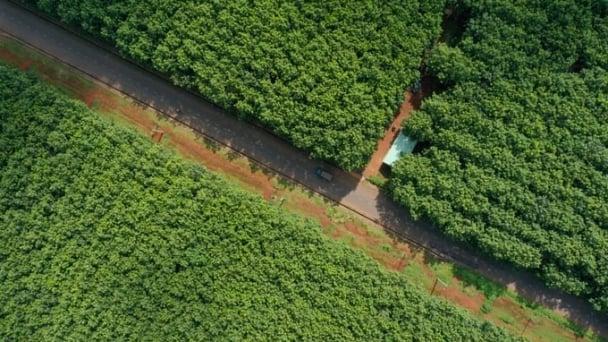
(VAN) The European Commission has just released a list of ‘low-risk’ countries for deforestation, which includes Vietnam.
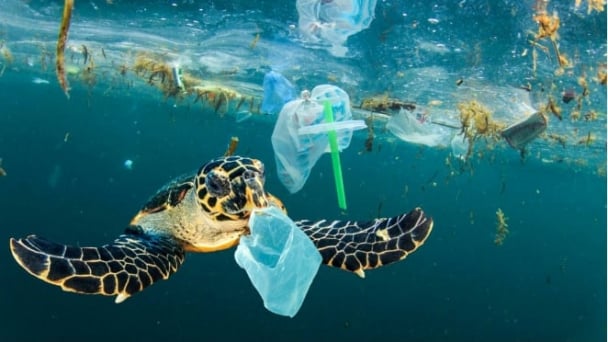
(VAN) The convenience of single-use plastics is leaving lasting consequences for the oceans.